Ingo Schweder, CEO & Founder of GOCO Hospitality talks about wellness tourism and the trends of this type of tourism.
TravelDailyNews: In a stressful world wellness tourism comes as a new term but “well-being” comes to the contemporary world through ancient Greek and Roman times. What is wellness tourism all about and who are the strongest wellness destinations nowadays?
Ingo Schweder: Wellness tourism includes all travel where mental or physical health is either the primary or secondary purpose of the trip. This often includes, but is not limited to, the achievement of stress relief, weight loss, detoxification, good nutrition, physical fitness and beauty. It also may include the engagement in traditional and complementary medicine, such as traditional Chinese medicine or Indian Ayurvedic medicine.
The top wellness destinations around the world include Costa Rica, Central Europe, the USA, Thailand, Bali and India.
Medical advances have allowed us to live longer lives; however, we can think of our bodies like cars – if we don’t look after them well, replace the oil and bring them in for regular servicing, they may run well for a number of years, but towards the end they will be faced with numerous problems. Our health is the same. If we don’t look after ourselves during our earlier years, we will experience a much lower quality of life as we get older.
The traditional method of medical education is for the diagnosis of existing diseases and conditions and then prescription of drugs or performance of surgery to solve the problem. The focus of the wellness sector and of more enlightened medical education and practice is on preventing illness through the encouragement of healthy lifestyles.
TDN: What is the profile of wellness travellers and which are the most important markets?
I.S.: Naturally, wellness travellers have a strong interest in health and fitness. They enjoy organic, vegetarian and healthy food and exercise often. In addition this, they tend to be quite socially and environmentally conscious. They enjoy being in nature, wish to see this conserved and are looking for travel operators and hotels that maintain high standards of sustainability. A study in the Lancet medical journal looking at American users of complementary and integrative medicine found men were around 45-55 years old and women were a bit younger, being on average 30-50 years old. The study also found them to have a higher than average disposable income at around 75,000 USD per year. Connected with this is a higher than average level of education, generally having at least a bachelor’s degree or higher. And naturally this means that they tend to have more professional and senior jobs. In terms of regions of origin, there are significant numbers of wellness travellers coming from China, the US, Europe and the Middle East.
There is a definite trend of a “democratisation of wellness”. Wellness is not just for the rich. Eating nutritious food, practicing meditation and exercising doesn’t need to cost a lot. In fact, it is very easy for hotels to provide guests with maps of local running or hiking routes, offer organic and nutritious food in their restaurants, and provide mediation and yoga apps on a tablet in the guest rooms. There is a lot that hotels can do without a massive capital outlay, but it all has to be done intelligently and with an overall strategy. This can be done just as easily in a 3 or 4-star hotel, or even a hostel. All it takes is some careful thought. What is most important is that you understand your guest’s needs in terms of wellness.
The future of wellness will be in creating a business model that responds to the wellness needs of the masses, not just the rich.
TDN: Which are the current trends in wellness tourism and what is the future of this type of tourism?
I.S.: The main trend is one of an increased awareness of and interest in wellness tourism, and therefore greater spending on this type of tourism. The total wellness economy was estimated to be worth $3.7 trillion in 2015, with wellness tourism being worth over $563 billion. Between 2013 and 2015 spending on wellness tourism increased 7%, twice that of the 3.5% growth seen in the overall tourism sector. This growth is expected to continue, with wellness tourism reaching $808 billion by 2020. The Asia-Pacific region will be a huge part of this future increase, being one of the fastest growing regions for wellness tourism.
As this sector continue to grow, we will see a much greater variety in the wellness tourism offerings in the market. There will be a greater amount of catering to specific segments of tourists in the market in order to fully meet their needs.
We will also see a continued merging of wellness tourism with medical tourism. Right now wellness resorts are investing more and more in advanced diagnostics equipment and the medically trained professionals required to provide wellness tourists with sophisticated information on their current state of health and detailed consultation on how they can improve their lifestyle in order to live a better life. All of this is happening in a resort-style environment, not a clinical and unwelcoming hospital environment.
More widely, we see that people are becoming increasingly aware of the importance of good nutrition. The organic food industry grew from $20-90 billion in a period of just four years. In advanced economies such as Germany, France and the UK now, vegetarianism is practiced by roughly 10% of the population. Travel operators and hotels need to be looking to meet this demand for more nutritious food options in their restaurants.
TDN: New technologies evolving day by day in the travel and hospitality industry. How do you think wellness tourism is affected by digital technologies?
I.S.: Firstly, right now we are certainly seeing a reaction against digital technologies amongst some people. Many feel that they are getting too hooked to their digital devices and spending too much time focused on their phones and not enough time on what is directly in front of them. People want to take back possession of their attention and focus it on what is truly important to them. People are realising that one of the best things about traveling is being totally in the moment and enjoying the experience. This is leading to the digital wellness movement, where people are trying to manage their digital usage and even cutting it out completely with digital detoxes. There are even digital detox rooms at some wellness retreats where there is no WiFi, no satellite TV and no internet connection, the complete opposite of what has been happening up until now in the standard hotel sector.
At the other end of the spectrum is the digitisation of wellness. This involves using virtual reality to create fully immersive experiences during massages, yoga classes, exercise and meditation sessions. While done in different ways, you can see that both the digital detox and the digitalisation of wellness are focused on creating experiences where people are fully immersed and focused on the experience without outside distractions.
In addition, we also have the wearables and fitness tracker market, which has experienced a major rise over the past few years. Fitbit has reported 25 million active users, and it is growing at 9% per year. These devices allow people to measure and analyse their physical state throughout a day, week, month etc. and gain insights into how well they are achieving their fitness and health goals. All this data can be shared with health and fitness experts at wellness retreats, gyms and spas so that they can provide tailor-made lifestyle suggestions.
The huge amount of health and wellness information that is online has been a strong force in the growth of the wellness industry. People have access to information about whatever they want to learn. This has allowed people to explore alternative health and fitness options.
TDN: Thailand is one of the most important destinations for wellness. What makes it so unique and which are its main competitors?
I.S.: Thailand has a very strong brand as a wellness destination. This stems from the long history and culture of traditional Thai medicine, much of it originating from the old Indian traditions. Thai massage is the most known of these traditions. It is extremely popular around the world and many foreigners come to Thailand to learn it every year. However, there is a very rich heritage of Thai herbal medicine too. Adding to this is a peaceful and laid-back culture based on Buddhism and Buddhist meditation.
For any wellness destination to be successful, it needs to have a strong overall tourist infrastructure, and Thailand certainly has that. It has good airports, hotels, and roads. But what makes Thailand particularly strong is its strong service culture. Thailand is a very welcoming place and that has been a major asset to the hospitality industry, which is also a benefit for the wellness tourism sector.
We also shouldn’t forget to mention the beautiful natural environment that Thailand is so well known for. For many wellness tourists, being immersed in nature is an important activity, and Thailand offers this in abundance.
Nutrition is a core pillar of good health and Thailand also provides an incredibly varied and nutritious cuisine. This is something that I think hasn’t been fully explored by the restaurant and hotel sector in Thailand. They too often stick to a small collection of classics such as green curry, Pad Thai and papaya salad. There is a vast collection of highly nutritious foods that the hospitality industry can explore and provide to visitors.
The main wellness destination competitor for Thailand would be Bali. It has a very unique and distinctive wellness culture of its own, and is a definite draw to wellness tourists, although the Thai wellness offering is more mature.
TDN: We see Thai wellness brands to expand abroad. What can we expect the years to come?
I.S.: Thailand has a very strong wellness brand and that will certainly increase in the future. What I feel Thailand really needs is new and innovative wellness products. It also needs a stronger wellness offering at the mid-market level. We currently have wellness resorts targeting the very luxurious sector of the market, but there is a large market of average middle-class wellness tourists looking for good travel products, and this is a market ripe for Thailand to target.
Currently in Thailand Health Land is the only mid-range chain of spa services. There is potential for much more.
We are currently working on bringing our GOCO Life concept to Pattaya. GOCO Life is an urban wellness hotel concept that provides a young and dynamic communal hospitality setting where people connect and engage in meaningful mental and physical wellness activites. Sports combines with eating good and nutritious food, modern spa facilities and expanding and calming the mind.
TDN: What is the expertise of GOCO Hospitality?
I.S.: Right now, an investor and developer needs to contact a wide range of companies in order to help them open a wellness resort. There is a huge time cost in coordinating with multiple suppliers. These companies also may not have a consistent vision. GOCO Hospitality offers a turnkey solution for spa and wellness hospitality developments. We provide everything from market research and financial feasibility studies – including asset management, business planning and even advising sovereign wealth funds – which is conducted by our sister company Horwath HTL Health and Wellness, through to concept development, design and technical services, pre-opening services and full property management.
We help create spas, wellness retreats and wellness communities.
When developing spas, its important to create a world-class service but in an authentically local setting. When I was at the Mandarin Oriental in Bangkok we created the spa out of an old Thai teak house. It is all about crafting a unique experience. At our spa in Crete, we greet all guests in Greek. Our new spa in Koh Chang will be using local Thai products and providing Thai treatments. Our spa in Venice uses the olive oil from the island’s olive grove in the spa treatments, an example of what is being called farm-to-massage-table treatments.
About Ingo Schweder
Ingo brings more than 30 years of experience from the fields of Spa and hospitality.
• Master Program – Cornell University- Ithaca, New York
• BA in Hotel Administration and Management – Albrecht Durrer School, Germany
• Journalism and International Communication Studies – Ludwig Maximilian University, Germany
As CEO and founder of GOCO Hospitality, Ingo Schweder brings more than 30 years of experience from the fields of spa and hospitality. He has been involved with the design, development and worldwide operation of iconic hotels and wellness destinations. Ingo is considered to be one of the foremost hotel and spa experts in the world, and his experiences and accolades to date are a fitting testament.
Under his guidance, Ananda in the Himalayas, the globally recognised destination spa, was established. During his tenure at the Mandarin Oriental Hotel Group, he established 15 spas on four continents. Prior positions include Group Director of Hotel Operations for Oberoi Hotels & Resorts and Managing Director of Rafael Group Hoteliers, Southeast Asia.
Ingo has been recognised with countless industry awards including Spa Personality of the Year, Excellence in Hospitality Design, Most Distinguished Industry Motivator, and Best Spa Company. Always engaging and willing to share his expertise, he is a frequent speaker at hospitality-related symposia and sits on the Board of the Spa India Association and the China Spa Symposium.
Many of his past projects still top the list of some of the leading industry awards including Condé Nast Traveler, winning ‘Best Resort’ and ‘Best Spa’ honours.
Theodore is the Co-Founder and Managing Editor of TravelDailyNews Media Network; his responsibilities include business development and planning for TravelDailyNews long-term opportunities.
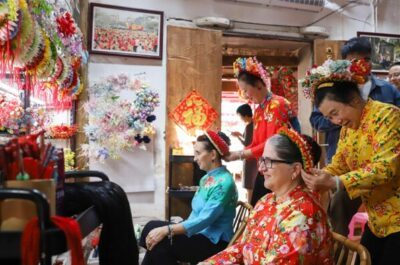
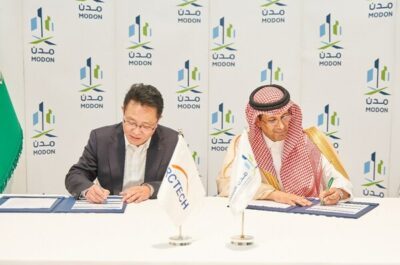
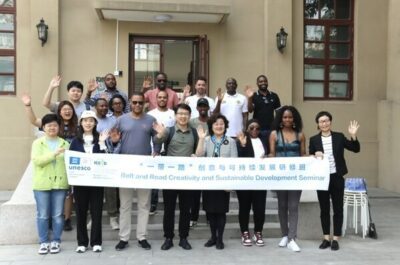









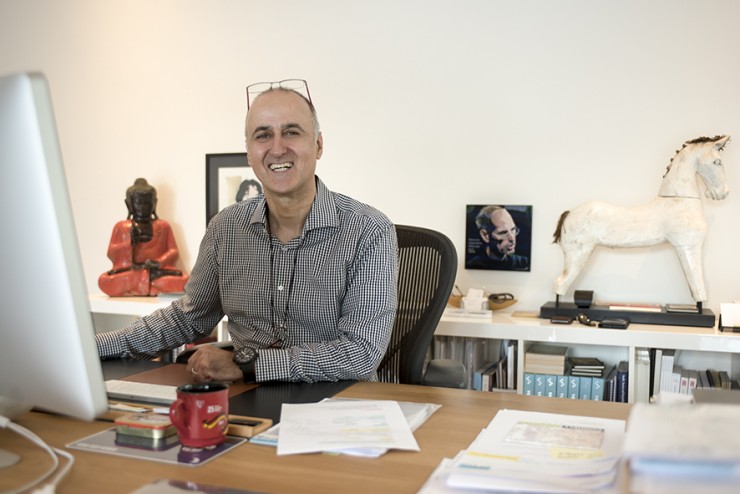

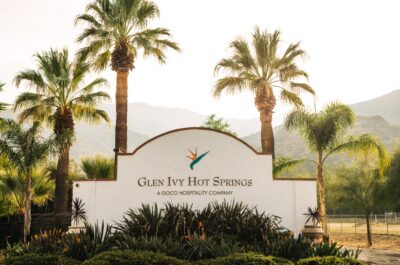
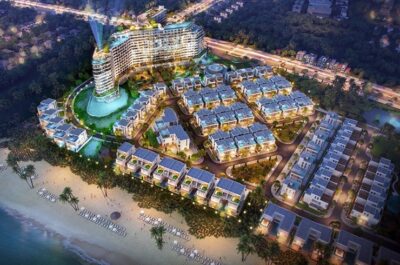
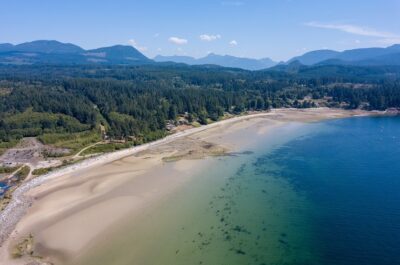
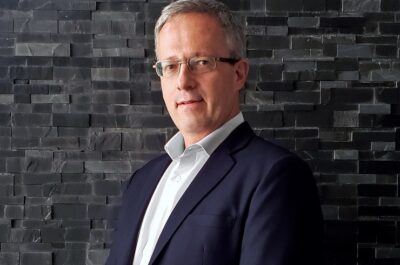









![[PR] PR_Ascott and Vimut Hospital_2024](https://www.traveldailynews.asia/wp-content/uploads/2024/04/PR-PR_Ascott-and-Vimut-Hospital_2024-400x265.jpg)






















































